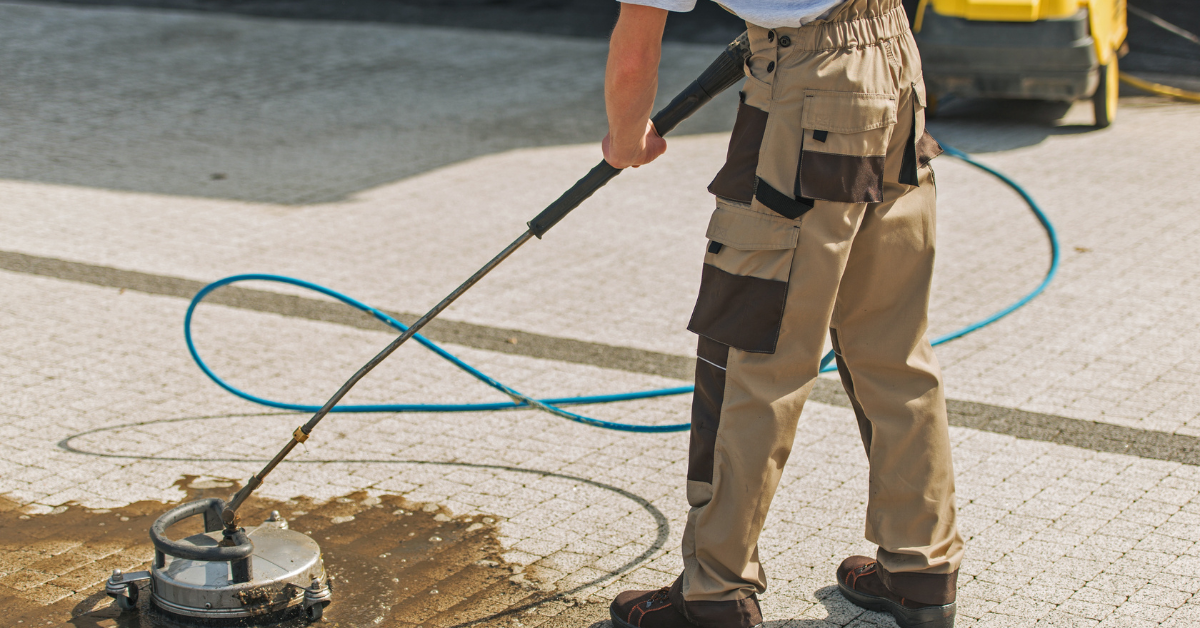Wondering what causes a radiant floor heating system to lose pressure? Discover common reasons, including leaks, air in the system, and faulty valves, and learn how to address these issues to keep your radiant heating running efficiently.
What Causes a Radiant Floor Heating System to Lose Pressure?
Radiant floor heating systems offer efficient and comfortable warmth by circulating warm water or electricity under the floors. However, one common issue with these systems is pressure loss, which can lead to uneven heating, reduced comfort, and increased energy costs. If you’ve noticed a drop in pressure, understanding the underlying causes is essential to maintain your system’s performance and longevity.
This guide will explore the common causes of pressure loss in radiant floor heating systems, the advantages and disadvantages of these systems, and why you should consider professional repair services for your system.
1. Common Causes of Pressure Loss in Radiant Floor Heating Systems
A radiant floor heating system relies on consistent pressure to circulate heat evenly across the floor. When the pressure drops, it’s often a sign that there is an issue within the system. Here are some of the main reasons a radiant floor heating system might lose pressure:
1.1 Leaks in the System
Leaks are one of the most common reasons for a radiant floor heating system to lose pressure. In hydronic systems, water or glycol leaks can occur due to:
- Damaged Pipes: Corrosion, wear, or physical damage to pipes can create tiny holes, leading to slow leaks.
- Loose Connections: Improperly tightened or deteriorated joints and fittings may also cause leaks.
- System Age: Over time, older systems are more prone to leaks as materials degrade.
These leaks often require immediate attention to prevent water damage and maintain pressure.
1.2 Air in the System
Air can enter a radiant floor heating system through small leaks, inadequate initial purging, or when water evaporates and leaves small air pockets behind. Air in the system disrupts pressure and can cause uneven heating or cold spots.
- Expansion Tank Issues: If the expansion tank is malfunctioning, it can allow air into the system, leading to pressure drops.
- Improper Bleeding: If air is not fully purged during the installation or maintenance process, air pockets can form, causing pressure fluctuations.
1.3 Faulty Valves or Pump Issues
The valves and pumps in a radiant floor heating system regulate water flow and pressure. Over time, components can wear out or become stuck, leading to irregular pressure:
- Pressure Relief Valve: A faulty relief valve may release too much water, causing a loss of pressure. This valve helps release excess pressure, but when it’s malfunctioning, it may disrupt the system’s stability.
- Circulation Pump Malfunction: If the circulation pump isn’t working correctly, it can result in an uneven flow of water, causing pressure fluctuations.
1.4 Improper Installation or Design Issues
In some cases, the system may have been installed incorrectly, leading to inherent pressure issues. Common installation problems that cause pressure loss include:
- Inadequate Pipe Sizing: Pipes that are too small or too large for the system can lead to pressure issues.
- Incorrect System Layout: Poorly designed systems may create hot and cold zones, leading to imbalanced pressure throughout the system.
1.5 Lack of Regular Maintenance
Regular maintenance is key to keeping a radiant floor heating system functioning smoothly. Without routine checks, minor issues like small leaks, air pockets, or mechanical problems can go unnoticed, eventually causing the system to lose pressure.
2. Advantages and Disadvantages of Radiant Floor Heating Systems
Understanding the pros and cons of radiant floor heating systems can help you weigh the value of maintaining and repairing these systems.
2.1 Advantages
- Energy Efficiency: Radiant floor heating uses less energy than traditional systems because it heats objects rather than air. This creates a more comfortable, evenly distributed warmth.
- Consistent Comfort: Radiant heat rises evenly from the floor, eliminating cold spots and providing steady warmth.
- Silent Operation: Unlike forced-air systems, radiant floor heating is virtually silent.
- Reduced Dust and Allergens: Since there’s no blowing air, radiant heating reduces the circulation of dust and allergens, benefiting those with respiratory issues.
- Long Lifespan: Well-maintained radiant heating systems can last 20-35 years, providing long-term value.
2.2 Disadvantages
- High Initial Costs: The installation of a radiant floor heating system can be costly, especially if retrofitting into an existing home.
- Repair Complexity: Accessing parts of the system, especially in-floor components, can be difficult and may require professional assistance.
- Slow Temperature Adjustment: Radiant floor heating systems generally take longer to heat up and cool down, meaning they are not ideal for fast, frequent temperature changes.
- Potential for Leaks: In hydronic systems, leaks under the floor can be challenging and costly to repair.
3. Why Choose Us for Your Radiant Floor Heating Repair Needs?
If you’re experiencing pressure loss in your radiant floor heating system, addressing it early is essential to avoid further damage and high energy costs. Here are reasons to choose our team for your heating repair needs:
3.1 Experienced Professionals
Our technicians are trained to handle both hydronic and electric radiant heating systems, ensuring that we can accurately diagnose and repair any issues with pressure loss. We understand the specific challenges of radiant systems, including complex leaks and air pockets, and can provide effective solutions.
3.2 Comprehensive Diagnostic Services
We conduct thorough diagnostics to identify the root cause of pressure loss in your system. From checking for leaks and valve issues to inspecting the expansion tank and circulation pump, we leave no stone unturned to ensure your system is fully operational.
3.3 Transparent Pricing and Detailed Estimates
We believe in transparency, so we provide detailed estimates before beginning any work. You’ll know exactly what to expect, with no hidden fees.
3.4 Fast, Reliable Service
We know how important a reliable heating system is, especially during colder months. Our team is committed to providing timely repairs to restore warmth and comfort to your home as quickly as possible.
3.5 Preventative Maintenance Programs
To prevent future issues, we offer regular maintenance services that help keep your radiant floor heating system in top condition. Regular maintenance can identify potential issues before they become costly repairs.
4. Tips to Prevent Pressure Loss in Radiant Floor Heating Systems
While pressure loss can be a common issue, there are several ways to help prevent it and keep your system running efficiently.
4.1 Schedule Regular Maintenance
Routine maintenance by a professional can help prevent issues like leaks, air buildup, and component wear that often lead to pressure loss.
4.2 Monitor Pressure Levels
Keep an eye on your system’s pressure gauge to detect drops early. Regularly monitoring pressure levels can help catch potential issues before they become severe.
4.3 Bleed the System as Needed
Air pockets can form in your system over time, so it’s helpful to bleed the system occasionally to release trapped air. This can help maintain consistent pressure.
4.4 Check the Expansion Tank
An expansion tank helps regulate pressure in a hydronic system, so it’s essential to ensure it is functioning correctly. A professional can check and adjust it as part of your maintenance routine.
4.5 Inspect for Leaks Regularly
Visually inspecting around your floors and walls for any signs of water damage or leaks can help identify pressure issues early. If you spot any signs, contact a professional for an inspection.
Call a Professional for Radiant Floor Heating Repair
If you’re dealing with pressure loss or any issues in your radiant floor heating system, it’s essential to call a professional. Attempting DIY repairs on a radiant heating system can be complex, often requiring specialized tools and expertise to avoid further complications.
A qualified technician can quickly diagnose issues like leaks, faulty valves, air pockets, or electrical faults, restoring your system to optimal performance. With a professional’s help, you’ll ensure safe, effective repairs that extend the life of your heating system and prevent costly breakdowns in the future.
Contact us today for expert radiant floor heating repair and enjoy reliable warmth throughout the season!
Licensed and Authorized Professionals for Radiant Floor Heating Repair
When it comes to radiant floor heating systems, working with licensed and authorized professionals ensures safe, compliant, and effective repairs. Licensed technicians are certified by regulatory authorities, meaning they meet industry standards and possess the skills required for proper diagnostics, repair, and maintenance. Choosing a licensed provider also gives you peace of mind, knowing the work is insured and performed to high standards.
Our team is fully licensed and authorized to work on radiant floor heating systems, providing quality repairs you can trust. Contact us today for professional, licensed service that keeps your system running smoothly and efficiently!


